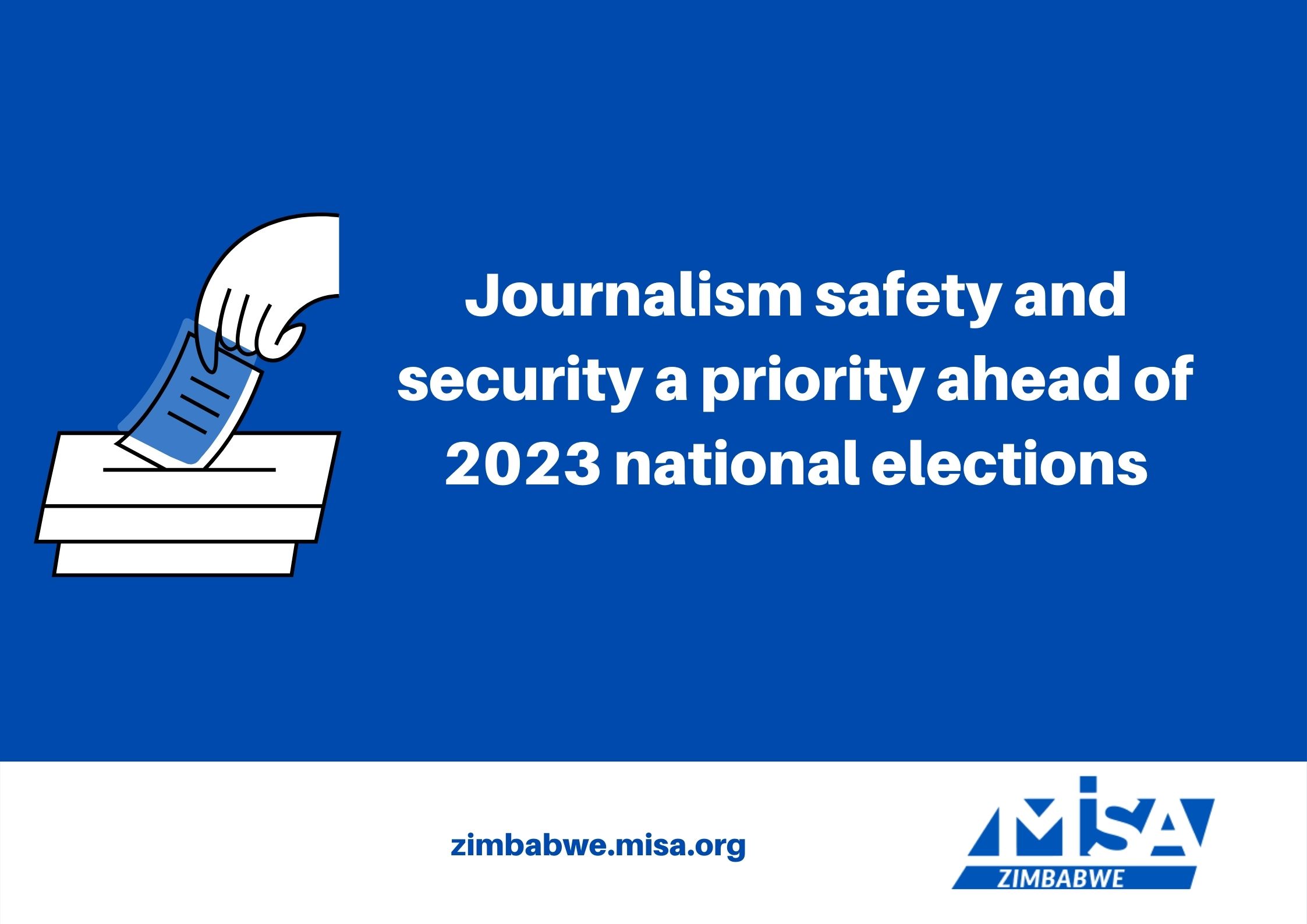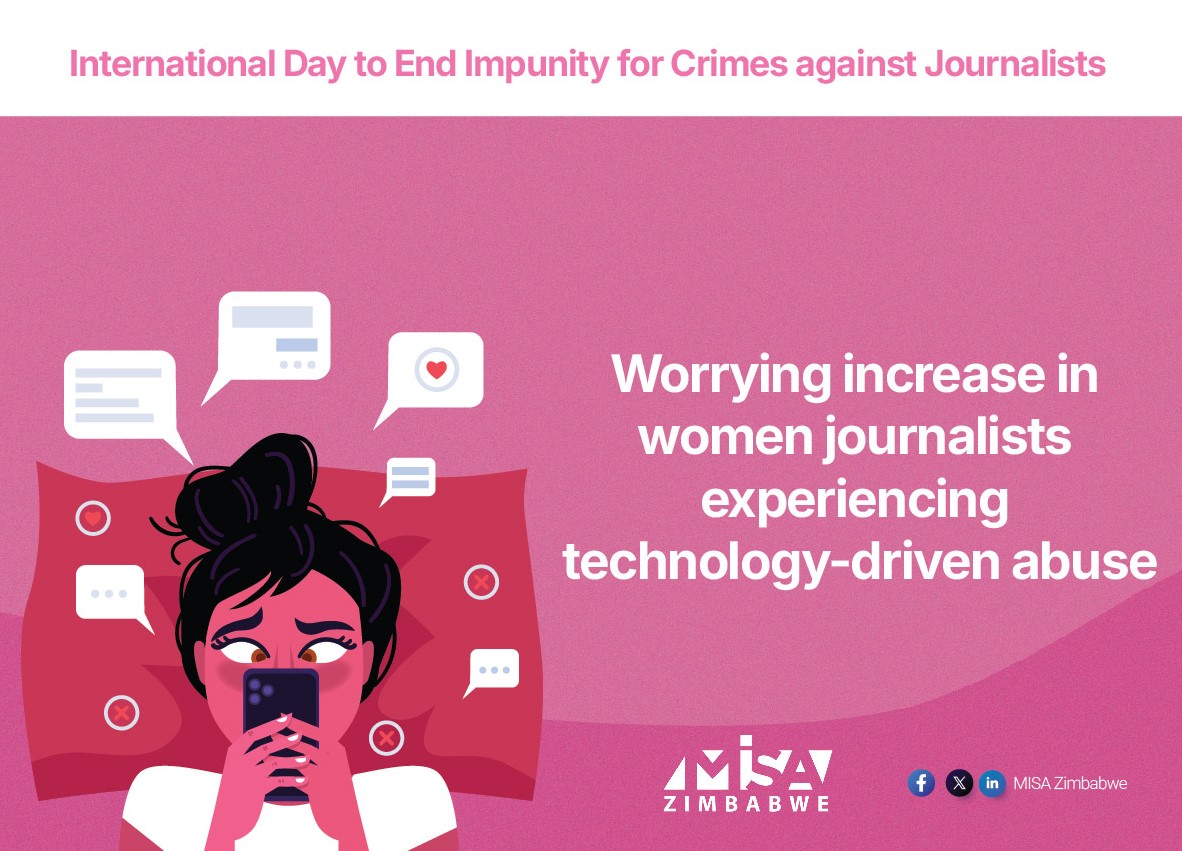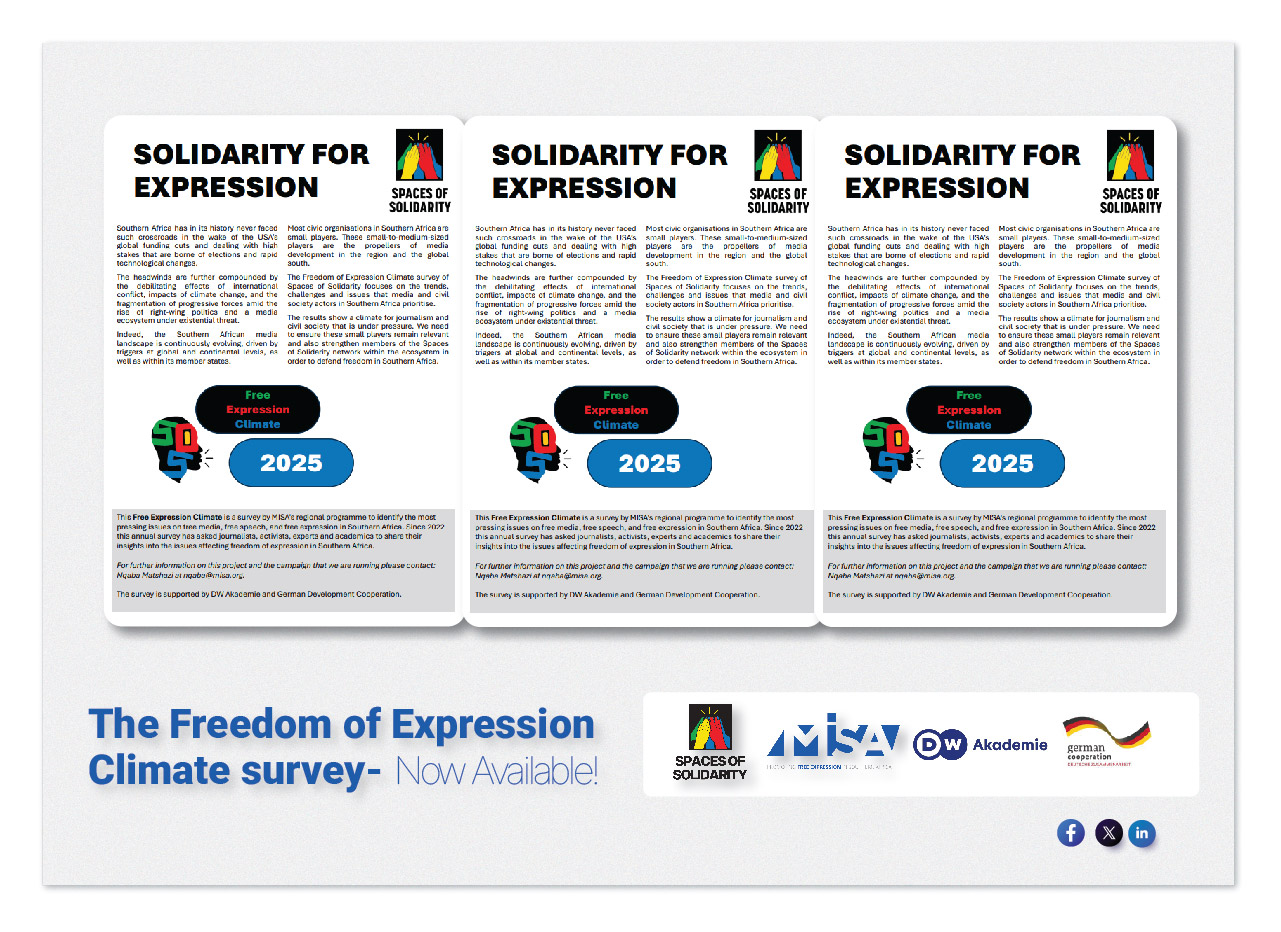As Zimbabwe commemorates this year’s 2022 World Press Freedom Day, MISA Zimbabwe takes note of the improving media operating environment as evidenced by the reduction in the number of media freedom violations in 2021.
We therefore urge the government, political parties and other responsible authorities such as the police and the security forces, to ensure the safety of journalists as they conduct their lawful professional duties.
The safety of journalists is of paramount importance ahead of the national elections in 2023 and beyond as cases of media freedom violations tend to increase during election campaign periods.
Our reference to an improving media operating environment is informed by the high number of cases of media freedom violations that we recorded in 2020.
However, in 2021 there was a marked reduction in the number of media freedom violations recorded by MISA Zimbabwe.
In 2020 Zimbabwe witnessed an upsurge in the number of journalists that were harassed, intimidated, assaulted and detained by members of the police and the army while covering their lawful professional duties.
The violations were particularly steep during the first six months of 2020 in the wake of the imposition of the country’s tight Covid-19 lockdown measures.
Violations involving a total of 52 media workers including journalists, vendors and media students, were recorded in 2020 compared to 22 in 2021.
It is therefore our hope that this situation continues to prevail during the course of this year with further reductions in the number of cases involving media freedom violations, and most importantly ahead of the 2023 national elections.
This also comes on the backdrop of notable progress in the context of the ongoing media reforms thrust where it concerns citizens’ right to access to information which is at the core of the enjoyment of other rights such as media freedom and freedom of expression.
In that regard, commendable steps were taken to give effect to the enjoyment of the right to freedom of information through the enactment of the Freedom of Information Act in 2020 in place of the widely discredited Access to Information and Protection of Privacy Act (AIPPA).
The new information law is a progressive step towards fostering citizens’ right to access to information. Other commendable developments include the licensing of the country’s first ever community radio stations and ‘private’ commercial television stations.
In saying this we are nonetheless also mindful and concerned with newly enacted legislation such as the Cyber and Data Protection Act and other existing laws with claw back provisions that risk reversing gains attained through enactment of progressive laws such as the Freedom of Information Act.
For instance, the Cyber and Data Protection Act has a provision that criminalises what is termed the transmission of data message that incites violence or damage to property.
Another problematic provision is the one relating to the transmission of false data messages.
False news offences promote self-censorship and unjustifiably infringe on freedom of expression, media freedom and ultimately, citizens’ right to access to information for informed choices and decisions.
This position is also supported by an existing constitutional court order which struck off criminal defamation.
These developments should thus be viewed and measured against this year’s universal World Press Freedom Day theme: Journalism under Digital Siege. This theme was coined to determine and weigh the digital era’s impact on freedom of expression, safety of journalists, access to information and privacy.
As highlighted by UNESCO, we should therefore take opportunity of the occasion of this year’s commemorations as policymakers, journalists, media representatives, cybersecurity managers and legal experts to explore these issues and develop concrete solutions to address threats posed by increased surveillance to press freedom and privacy.
This is critical for Zimbabwe as it forges ahead with its media laws and policy reforms underpinned by democratic regulation of the media that fosters professionalism and media accountability.
We therefore take note of the government’s commitment to co-regulation of the media as endorsed nationwide by media stakeholders and journalists. We urge the government to speedily gazette the Zimbabwe Media Practitioners Bill to give effect to co-regulation of the media to instil media professionalism and accountability.
As Zimbabwe heads towards the elections in 2023, political parties; the police and the broader security forces should ensure the safety and security of journalists during campaign rallies and at all times.
This will assist in reducing the number of media freedom violations that contribute to Zimbabwe’s incessant low global media freedom rankings.
On the other hand, journalists should, without fail, always strive for balance and fairness in their reportage and stories. In that regard, media professionalism is the very first line of defence for journalists as it is at the heart of media credibility and integrity.
As highlighted in our 2021 State of the Media Report, MISA Zimbabwe therefore recommends the following actions and considerations during the course of 2022:
- Policymakers, consumers, private companies, civil society organisations and POTRAZ should have meaningful, truthful and open conversations for purposes of addressing Zimbabwe’s high data costs which are detrimental to citizens’ right to free expression and access to information.
- The Zimbabwe Media Commission should seriously consider revising the accreditation of journalists from the current one-year period towards a two – five-year period, renewable before the expiry of the accreditation period to safeguard journalists against being exposed to the dangers that come with using expired cards.
- The outstanding Broadcasting Services Amendment Bill should be benchmarked on the principles of the African Charter on Broadcasting to secure a regulatory framework that stimulates the growth, sustainability and editorial independence of the broadcasting industry.
- Escalate training and awareness programmes to familiarise both citizens and public institutions with the Freedom of Information Act and the freedom of information regulations.
MISA Zimbabwe 2022 World Press Freedom Day Statement
Golden Maunganidze
Chairperson
MISA Zimbabwe













